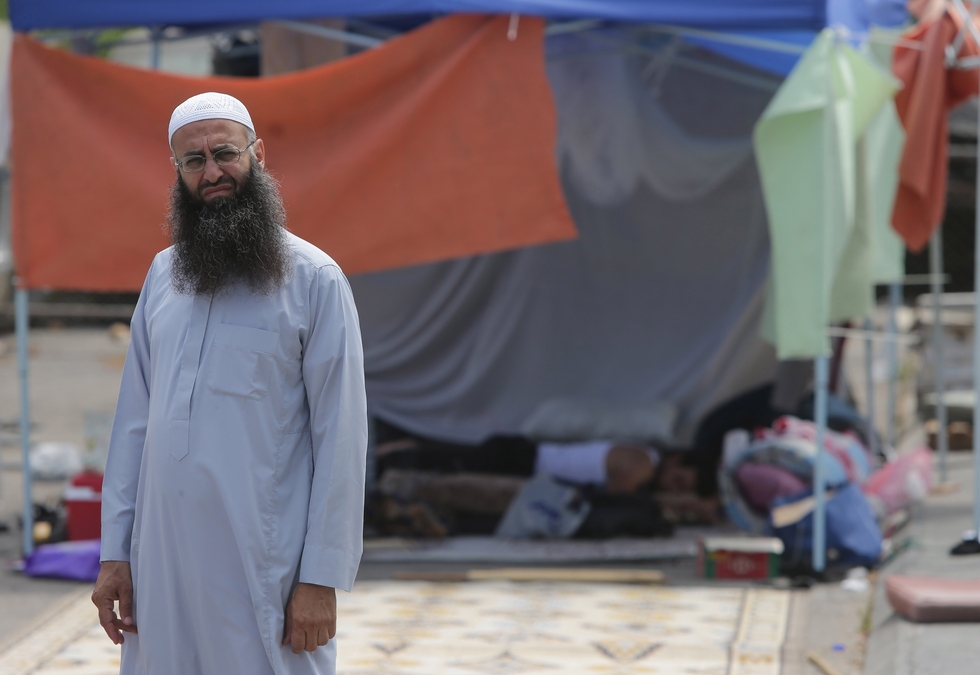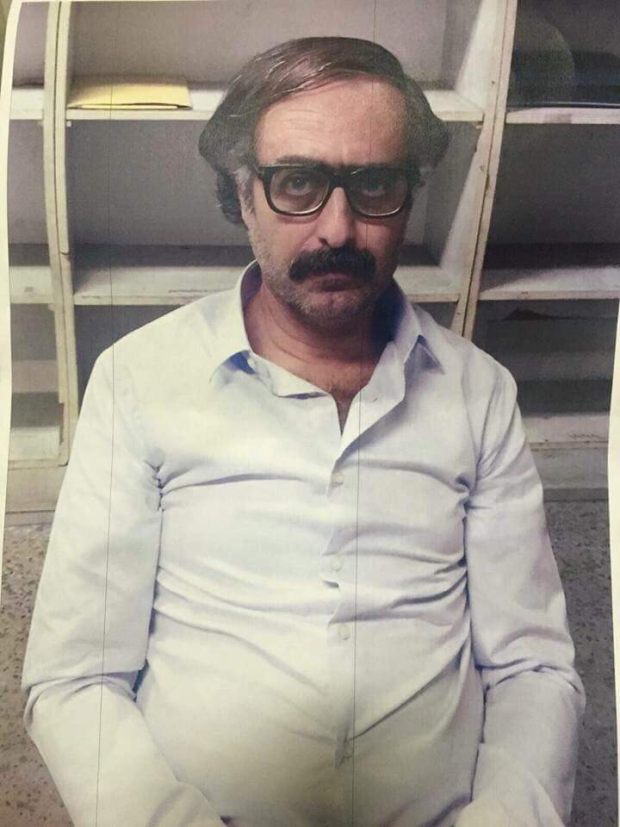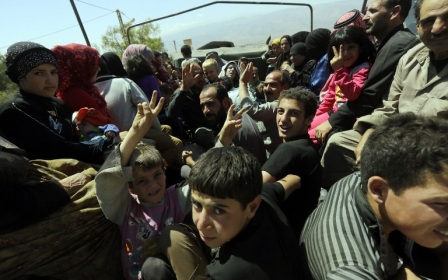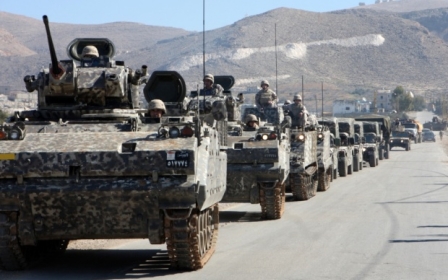Wanted Salafist arrested in Lebanon, despite having plastic surgery

A fugitive Islamic preacher wanted over deadly clashes with the Lebanese army was arrested in Beirut airport on Saturday as he tried to flee to Nigeria via Egypt, said security sources.
"Lebanese authorities arrested Ahmad al-Assir this morning at the airport. He had changed his appearance and was trying to leave the country," a security source said.
Security sources added that Assir, 47, had undergone plastic surgery to change his appearance and was using a fake passport to fly to Egypt from Rafik Hariri International Airport.
Pictures circulated online allegedly portraying Assir in his disguise, but it was only a day later when the correct image was shared, after Lebanese authorities released photos of Assir in the airport's interrogation room.
The Lebanese daily published details of the arrest, saying that Assir was traveling under the name Khaled al-Abbasi, which stated his nationality as Palestinian. Airport security were tipped off beforehand of "Mr Abbasi's" arrival, as Lebanese intelligence found out Assir's intent to leave the country six months ago.
Translation: "Are you Khaled al-Abbasi? Please come with us"...the complete story of Assir's arrest
The firebrand preaches had been on the run since June 2013, after his supporters engaged in a deadly two-day battle with the Lebanese army in the southern city of Sidon.
The army seized his headquarters after 48 hours of clashes that killed 18 soldiers, but Assir was able to escape with several of his followers. He continued to issue audio statements while on the run, and various rumours circulated as to where in Lebanon he was hiding.
He and his associates were accused of "having formed armed groups that attacked an institution of the state, the army, killed officers and soldiers, took explosive materials and light and heavy weapons and used them against the army".
The clashes erupted after Assir's supporters opened fire on a military checkpoint.
The fighting, which centred on the Abra district in the eastern outskirts of Sidon, spread quickly, wounding dozens of civilians and paralysing much of the coastal city.
Charges against Assir include forming a terrorist organisation and inciting violence against the army.
In 2014, a military judge recommended prosecutors to seek death sentences for Assir and 53 others, including Lebanese singer-turned-fundamentalist Fadel Shaker.
Known as the "King of Romance" before he gave up music, Shaker was popular for songs such as W’ftara’na, meaning And we parted.
Earlier this year, in his first public statement since the battle of Sidon, Shaker expressed his wishes to revert back to a “normal life” without specifying if that meant a return to his pop singing career.
Assir was a virtual political unknown until the outbreak of the Syria conflict in 2011. However, he later began making headlines for criticising Lebanon's powerful Hezbollah movement and its ally Syrian President Bashar al-Assad. His preachings were given considerable coverage among Lebanon's satellite channels, but Assir also indulged in media stunts such as posting photos of himself and his entourage swimming in the sea wearing white t-shirts and long shorts. He also rode his bike once through an anti-Hezbollah rally to inform his supporters of his talks with Lebanese officials.
One of his most controversial acts was when he took his supporters to the Feraya ski resort, an area that is predominantly inhabited by Lebanese Christians and populated with tourists. Images of Assir and his supporters praying in the snow went viral, infuriating the locals there who accused him of stirring up sectarian tensions.
In one of his last public interviews before the Sidon clashes, Assir lashed out at Hezbollah’s role in the Syrian conflict and condemned the party’s secretary-general, Hassan Nasrallah for allying himself with the Syrian government.
“How could those who experienced Israel’s injustice accept injustice against women and children?” he asked. “Why are you taking this position Sheikh Hassan, when you know they are slaughtering us with knives?”
He encouraged his supporters to join Syria's mainly Sunni rebels and to rise up against Hezbollah.
“It is a religious obligation to support the oppressed against the oppressors and everyone knows that the Syrian regime is one of the most oppressive there is,” he said. “It is flattening our homes and mosques.”
Although he was born to a Shia Muslim mother, his discourse was highly sectarian and he often accused Lebanon's army of failing to protect Sunnis and being beholden to Hezbollah.
New MEE newsletter: Jerusalem Dispatch
Sign up to get the latest insights and analysis on Israel-Palestine, alongside Turkey Unpacked and other MEE newsletters
Middle East Eye delivers independent and unrivalled coverage and analysis of the Middle East, North Africa and beyond. To learn more about republishing this content and the associated fees, please fill out this form. More about MEE can be found here.





